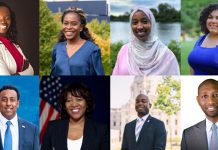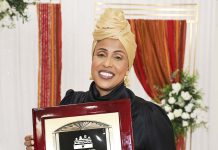
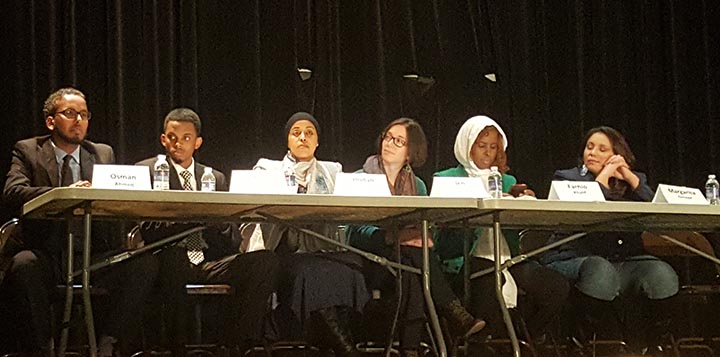
Six Democrats who have announced in Minnesota House District 62A met for their first candidate forum in Minneapolis Tuesday night ahead of next week’s February 6 caucuses. The six included four Somali-Americans that have declared for the same seat, a record number in the 22 years that Mshale has covered the state’s African immigrant community. Four of the candidates at the forum were Somali-American and a fifth that was expected and had his nametag already waiting for him, Guhaad Said, was a no show.
District 62A encompasses a large portion of south Minneapolis including the neighborhoods of Powderhorn Park, Ventura Village, Seward, Phillips (Midtown and East), Whittier and Stevens Square (where Minneapolis Institute of Art is located)
Osman Ahmed is a staffer at US Senator Tina Smith’s district office.
“As a community organizer and a public servant in the last ten years I understand our issues and challenges,” Ahmed said. “I am running because I want to see change in our community and I am not waiting for someone else to make it happen.”
Ahmed, born in Somalia, has lived in the district for over ten years and moved to Minnesota from a refugee camp in Kenya at the age of 16 in 2004. His first experience with politics was to work on the re-election of Barack Obama as a senior in high school. After graduating from the University of Minnesota, he worked as a field representative for Congressman Keith Ellison and
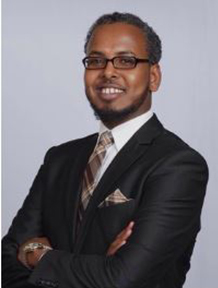
eventually for former Senator Al Franken.
Omar Fateh, a state employee at the Minnesota Department of Revenue said he has the knowledge, vision and experience to serve as the district’s next state representative. He told the forum that public service has been his passion “my whole life.”
“Listening to stories across the district I am reminded how we are in a moment of crisis. I am running because there are many challenges our district faces that disproportionately affects communities of color. Many of the crises we face begin with the crisis of housing. The solution lies in more units of affordable housing. As your representative I will require that any new housing complexes designate units for low income families through inclusionary zoning.”
Fateh was born and raised in the DMV (DC, Maryland, Virginia) area before attending George Mason University where he obtained both his bachelors and master’s in public administration.
Mental health clinician Hodan Hassan told the forum she first moved to the Twin Cities in 1994 and lived in Ventura Village, which is in District 62A until 2004. She said she just moved back to the district a year ago. Ventura Village imbued in her the passion for diverse communities and she got the chance to work with underserved communities.
“Minnesota is the best state for students who are white but at the same time it is number 48 for students of color and that is unacceptable,” Hassan said. “As someone who has worked through these different systems I know how to make the systems work and if elected to this position I want to advocate for universal healthcare with emphasis on preventive care.”
Jen Kader, an eight-year district resident emphasized her community organizing and lengthy resume of involvement in various Twin Cities citizen groups and advisory committees.
“When I think what a good legislator looks like, the following four things come to mind, someone who listens, thinks critically and looks for linkages and patterns and builds relations and coalitions for the wellbeing of those in their community presently and future generations” Kader said. “These are attributes that have characterized my work and volunteer time and ones that I
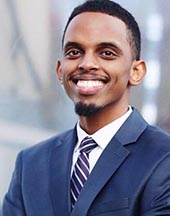
will strive to continue to live by as the next district representative.”
Farhio Khalif rose to prominence when she founded Voice of East African Women in 2012 to advocate for survivors of domestic violence. She was the only candidate on stage to directly acknowledge the heavy Somali presence with a thunderous greeting of “As-Salaam-Alaikum” which translates to “Peace be upon you.”
“In this same room we are tonight I brought Governor Mark Dayton to a forum to talk about islamophobia and hate crimes and he sat here for an hour and a half,” Khalif said. “If we work together and are united we will be stronger together and I will bring you along to do the fighting together.”
Margarita Ortega, born to a Native American mother and Cuban father, has lived all her life in the district. She shared with the forum the struggles of her life growing up in the district, which included homelessness and the inequities that bedevil the area. Those experiences, she said, have given her a unique perspective on what government is supposed to do to address an unequal society. She drew sustained applause for pausing to admit how nervous she was speaking at the forum.
“I am running not because I am seeking fame but because I want to change the system that has oppressed our communities for too long,” Ortega said. “My priorities are based off of my experiences; I will work on homelessness as I have experienced it. We need to change the Hennepin County income cap to help alleviate some of the issues and barriers to paying rent and we need to make affordable housing actually mean affordable and I also want to make sure Karen Clarks legacy of environmental justice lives on.” Karen Clark is the retiring 19-term representative who announced in December that she would not be seeking reelection in November, which started a scramble for the safe Democratic seat. The six candidates seeking to replace Clark were yet to be born when she first won the seat in 1980.
All the candidates went to great lengths to express their high regard and respect for the departing popular 19-term legislator Karen Clark.
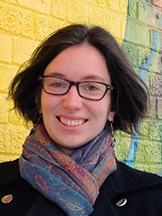
The six candidates addressed audience questions on affordable housing, LGBTQ rights, K12 education, jobs and Ranked Choice Voting.
Ranked Choice Voting
The candidates agreed in virtually all the issues raised at the forum with the exception of Ranked Choice Voting. Khalif was the only one to say she does not favor expanding the system. Ranked Choice Voting is used only in local government elections in Minneapolis and St. Paul. This past November it was instrumental in the election of the first black Mayor in the City of St. Paul, the state’s capital city.
Fateh called for the banning of unpaid internships for the youth as it disadvantages students from poor families who cannot afford to enroll in unpaid summer internships because they have to take up retail jobs to support their families. He said he would author legislation to correct this if elected.
“As an academic advisor I saw very brilliant students forego unpaid opportunities and the experience.”
Hodan Hassan took used her time to point out the many significant employers that are in the district such as the Midtown Global Market, Wells Fargo campus, Children’s Hospital and Abbot Northwestern Hospital and the two main Somali malls in Minneapolis.
“This means money on the table and we need to bring them to the table to ensure jobs for our people and youth,” Hassan said.
Jen Kader stressed the importance of focusing on systemic changes and how different parts operate to effect change.
“I will be sure to bring the focus on system level changes to address the challenges we have in our community,” she said.
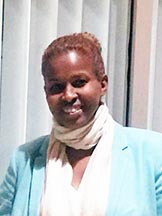
Osman Ahmed said he is worried about the assault on workers’ rights and their stagnant wages.
“If you elect me I will be out there fighting for you and with you. We also need to protect our unions because if they lose their power there will be no one advocating for workers’ rights.”
Khalif joined all the other candidates in pledging her support for the protection of LGBTQ rights and their safety. She highlighted her documented efforts to defeat the marriage amendment proposal in Minnesota, which ensured equality of marriage in Minnesota for that community.
“I am a Somali immigrant and the same rights that we fight for the LGBTQ community is entitled to the same and if I am elected I will make sure to fight for them.”
On Ranked Choice Voting where Khalif was the only contrarian from the pack, Ortega gave that system of voting its best defense at the forum.
“I am in favor of it because I have seen how we could get new people in power to make the changes we want.”
Endorsement
All the candidates, responding to whether they will abide by the party endorsement and support the party’s endorsed candidate, with some hesitancy they all pledged to do so as long as they
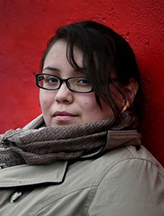
deemed the endorsement process to be fair.
The 470 capacity Marion O. Snargrass Auditorium at Sabathani Community Center was mostly full with Somali-Americans constituting the majority of those attending.
In terms of income, census data shows the legislative district has the lowest median household income in the state at $29,651. It has just over 41,000 residents with 49% identified as white and 30% as black. 24% are Latino or Hispanic and 4% are Native American. The Little Earth Native American community is located in the district.
What is next?
Minnesota party caucuses will be on Tuesday, February 6. At the caucuses, straw polls will be held and delegates to the Senate District 62 Convention on March 10 will be elected. It is at this March 10 convention where one of the six candidates will be endorsed as the party candidate for 62A.
State Democratic Party chair, Ken Martin, said this week thousands are expected at next week’s caucuses for his party. He however does not expect numbers to hit the record of 321,354 set two years ago during a presidential election year that saw Trump winning the presidency.
Where to Caucus:
Keep in mind caucuses are a political party affair.
To find out where to caucus, go here: caucusfinder.sos.state.mn.us
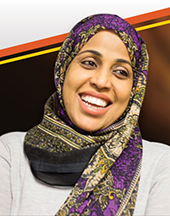
Key Dates for 62A
Tuesday, February 6, 2018: Caucus Day. 6:30PM-8:30PM
There will be a straw poll and delegates will be elected.
Go here to find out where to caucus: caucusfinder.sos.state.mn.us
Friday, February 23, 2018: Senate District 62 Democratic Party Convention. 9:00Am-5:00PM
The convention will endorse a candidate for District 62A.
Location: Justice Page Middle School, 1 W 49th St, Minneapolis, MN 55419
About Tom Gitaa Gitaa, Editor-in-Chief
Born and raised in Kenya's coastal city of Mombasa, Tom is the Founder, Editor-in-Chief and Publisher of Mshale which has been reporting on the news and culture of African immigrants in the United States since 1995. He has a BA in Business from Metro State University and a Public Leadership Credential from Harvard’s Kennedy School of Government. He was the original host of Talking Drum, the signature current affairs show on the African Broadcasting Network (ABN-America), which was available nationwide in the United States via the Dish Network satellite service. On the show, he interviewed Nobel laureates such as 2004 Nobel Peace prize winner, Professor Wangari Maathai, the first woman from Africa to win the peace prize and heads of states. Tom has served and chaired various boards including Global Minnesota (formerly Minnesota International Center), the sixth largest World Affairs Council in the United States. He has previously served as the first Black President of the Board of Directors at Books for Africa. He also serves on the boards of New Vision Foundation and the Minnesota Multicultural Media Consortium. He has previously served two terms on the board of the United Nations Association. An avid runner, he retired from running full marathons after turning 50 and now only focuses on training for half marathons.
- Web |
- More Posts(432)


